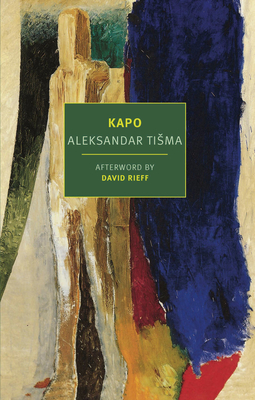Aleksandar Tisma (1924-2003) was born in the Vojvodina, a former province of the Austro-Hungarian Empire that had been incorporated into the new Kingdom of Yugoslavia after the First World War. His father, a Serb, came from a peasant background; his mother was middle-class and Jewish. The family lived comfortably, and Tisma received a good education. In 1941, Hungary annexed Vojvodina; the next year--Tisma's last in high school--the regime carried out a series of murderous pogroms, killing some 3,000 inhabitants, primarily Serbs and Jews, though the Tismas were spared. After fighting for the Yugoslav partisans, Tisma studied philosophy at Belgrade University and went into journalism and in 1949 joined the editorial staff of a publishing house, where he remained until his retirement in 1980. Tisma published his first story, Ibika's House, in 1951; it was followed by the novels
Guilt and
In Search of the Dark Girl and a collection of stories,
Violence. In the 1970s and '80s, he gained international recognition with the publication of his Novi Sad trilogy:
The Book of Blam (1971), about a survivor of the Hungarian occupation of Novi Sad;
The Use of Man (1976), which follows a group of friends through the Second World War and after; and
Kapo (1987), the story of a Jew raised as a Catholic who becomes a guard in a German concentration camp. Tisma moved to France after the outbreak of war and collapse of Yugoslavia in the early 1990s, but in 1995 he returned to Novi Sad, where he spent his last years.
Richard Williams's translations from the Serbo-Croatian include the Sinisa Kovačevic play
Novo je doba (
Times Have Changed).
David Rieff is the author of ten books, including
The Exile: Cuba in the Heart of Miami; Slaughterhouse: Bosnia and the Failure of the West;
A Bed for the Night: Humanitarianism in Crisis;
Swimming in a Sea of Death: A Son's Memoir; and, most recently,
In Praise of Forgetting: Historical Memory and its Ironies.






